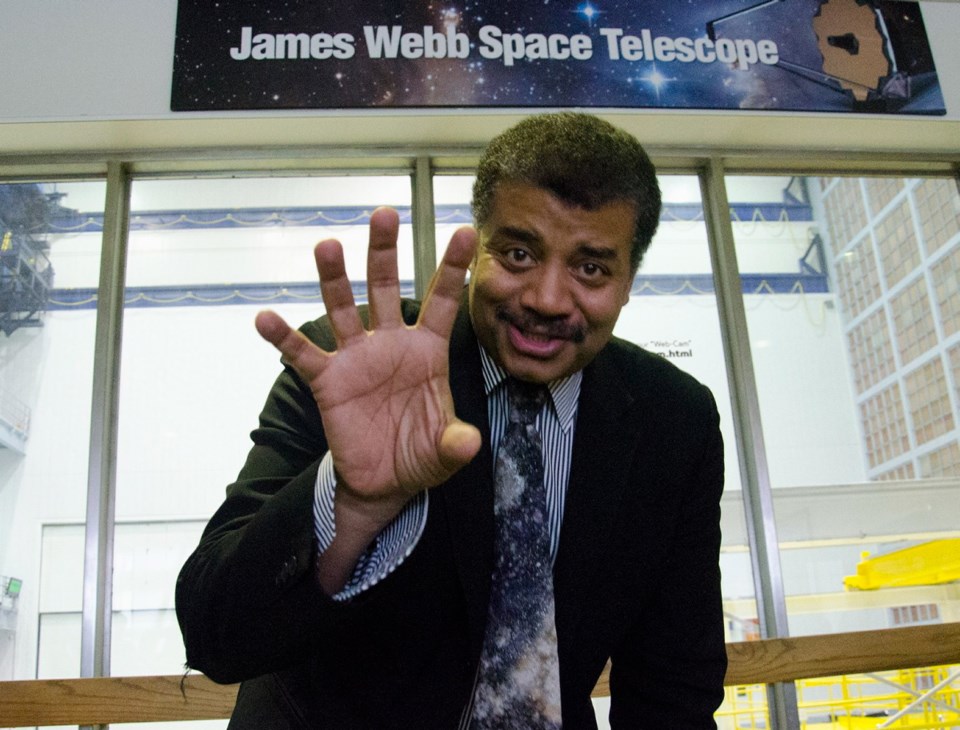There is an emerging school of thought about curriculum that in an age where truth “is not always truth” or that facts can be balanced by “alternative facts,” it could be what is learned in science class beyond formulas and calculations that might save our sanity.
Neil deGrasse Tyson is an astrophysicist who has probably done more than any other scientist, except his mentor Carl Sagan, to bring serious science into the world of pop culture.
Tyson’s credentials include the book Astrophysics for People in a Hurry, which was one the biggest-selling books of 2017.
He also holds the Frederick P. Rose directorship of the Hayden Planetarium at the American Museum of Natural History’s Rose Center for Earth and Space in New York City.
As a gifted teacher, communicator and scientist, Tyson is a frequent and riveting speaker advocating for a renaissance in the teaching of science, not just as a review of chemistry, physics or biology, but as a foundation for the role of learning in general and science in particular as the key to teaching kids how to distinguish truth from fabrication and misrepresentation.
He is well known for his frequently tweeted skepticism about populist, anti-science expression of political opinion.
In a June 2016 article in Popular Science, writer Kelsey D. Atherton quotes a Tyson tweet: “Earth needs a virtual country with a one-line constitution: All policy shall be based on the weight of evidence.”
Tyson carries the flag for the teaching of science as a way kids can learn about how to distinguish fact-based truth from politically populist and often ill-informed opinion.
In a 2015 CNN interview, he suggested: “The good thing about science is that it’s true whether or not you believe in it,” adding: “If you want to assert a truth, first make sure it’s not just an opinion that you desperately want to be true.”
In the world of pop culture, Tyson is not alone in providing a model for kids about the importance of science education.
Brian May, guitarist for the rock band Queen, when he was not performing around the world, also found time to earn a doctorate in astrophysics.
May wrote his thesis on interplanetary dust and coauthored a book called Bang! The Complete History of the Universe, writing: “So let us restrict ourselves to questions we can answer scientifically, which means questions we can answer through comparison with observation.”
Even within the scientific community there exists a certain “show me” skepticism about a broad range of scientific conclusions.
A case in point would be the debate about climate change.
In the online journal Skeptical Science, John Cook, a research assistant professor at the Centre for Climate Change Communication at George Mason University, writes: “The assertion that humans are, one way or another, at the root of global warming is the position of the academies of science from 80 countries.”
Nonetheless there are counter claims, the best known of which is a petition organized by the Oregon Institute of Science and Medicine. This petition appears to be signed by more than 32,000 people with a bachelor of science or higher qualification.
A study of science in 2018 could be a vehicle that leads students to a greater understanding of not just formulas and calculations but how the complex politics of global warming results from the global economy’s dependence on carbon dioxide-emitting hydrocarbon energy sources.
All this leads to a strong argument for cross-curricular study, even at the high school level, of how a study of science no longer stands alone but has become integrated into an awareness of how the international economy and even national and international politics struggle to accept or deny scientific fact as a basis for policy.
So as a way of thinking about “why science,” students seeking to understand the complexities of the world around them should be encouraged to bear in mind Albert Einstein’s caution, echoed by Tyson and May: “A man should look for what is, and not for what he thinks should be.”
Geoff Johnson is a former superintendent of schools.



